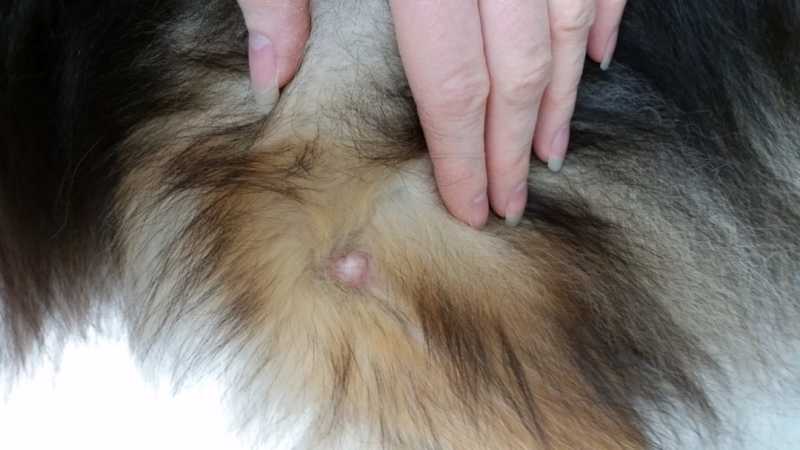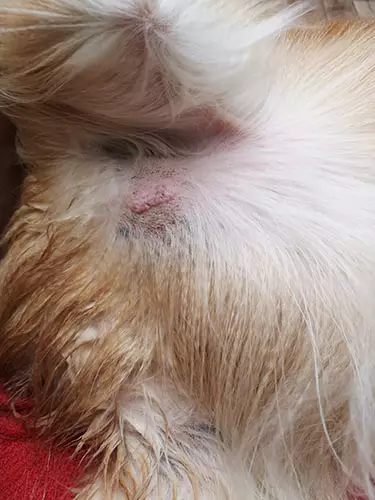
In an effort to make you feel better some. In an effort to make you feel better some.

Sometimes it is found internally in the liver or spleen.
How long will a dog last with untreated mast cell cancer. The life expectancy of a dog with an aggressive tumor that has spread to other parts of the body mediatized is roughly 4 to 6 months. Assuming the mast cell is in a place where it can be completely removed through surgery including a wide margin to account for cancer cells not seen there is a 90 100 chance the tumor will not recur. What is the Life Expectancy of a Dog With a Mast Cell Tumor.
Mast cell tumors in dogs have different grades or levels of severity and the life expectancy can vary from as little as a few months in a Grade III tumor to years with a Grade I tumor. Grade III tumors. Usually malignant Grade III mast cell tumors have a high chance of regrowth after surgery and are highly likely to spread to other parts of the body.
Unfortunately most dogs with this type of tumor will survive less than one year. Written by a Labrador Retriever lover Tim Falk. Few of research focus on what happens to be untreated cases and those that are often limited in follow-up information conclusions are somewhat unclear.
According to scientists the average lifespan of those dogs is about 2 to 3 months. Depending on the type of cancer your dog suffers from different short-term survival. Pit mix2 mast cell tumors removed high level 2 rating.
My dog a lab-pit mix 10 12yrs just had 2 mast cell tumors removed high level 2 rating. Unfortunately only 3 weeks after the surgery I have found another lump. I was wondering if instead of doing.
Chemotherapy is a common treatment to help slow the spread of the diseaseas left untreated the average life expectancy for dogs after diagnosis under three months. Unfortunately some dogs diagnosed with lymphomas will not respond to treatment and so its important for owners to engage in open and empathetic conversations with vets. My 9 year old basset hound had several tumors removed last week.
Most were fatty tumors but two were mast cells. They had been there for months. Otherwise my dog seems healthy and happy although one of the mast cells is not healing well and the other one looks strangely lumpy.
I dont think well do chemo or anything. While some pet parents discover a dogs cancer during a drastic decline in their health others may discover the issue during a routine exam of their happy pup. Some dogs will have a short span of happy days after their cancer diagnosis.
And others will continue to. Median survival for those dogs is roughly 2 or 3 months. So you are ahead of the game if your dog has good life quality 2 months after diagnosis.
If you were to look at some of the other statistics above you can see that if you had a dog who underwent spleen removal 8 weeks ago is not on chemo and is still maintaining you are beating the odds. When your dog passes it can be a time of overwhelming grief and sadness. It can take weeks or months to even begin the healing process.
We never forget our dog friends but time helps to lessens the severity of the pain. In an effort to make you feel better some. With pets living longer than ever cancer has become a diagnosis that we see more commonly in older dogs.
The American Veterinary Medical Association AVMA reports that one in four dogs will develop cancer at some time in their life and that 50 of pets over the age of 10 will develop cancer. While there are treatments and methods for achieving. Mammary carcinoma-occurs in unsprayed females 50 of the tumors are malignant.
Mast cells tumors-can be aggressive or benign no way to tell before biopsy. Cancer is not a death sentence for your dog. Cancer treatment has changed radically in the last ten years and more advances are literally happening every day.
If your dog develops cancer seeing a veterinarian is the first step in stopping. Some tumors appear and remain the same size for months or years while others show a rapid growth pattern over days or weeks. They can also increase and decrease in size over time.
Tumors can be irritating and dogs will scratch lick or bite the mass and surrounding skin. Jack has an aggressive cancer coursing throughout his body. A childhood friend who is now a vet tried to provide hope by urging us to do the.
When your pet is diagnosed with cancer it can be devastating news. Not only does cancer come in all different shapes and forms affecting different areas such as skin organs bones or nerves some can be aggressive either spread throughout the body metastasis or remain locally causing its own destructive tissue damage. The mast cell tumor is very common in the Pug Boxer Rhodesian Ridgeback Shar-Pei and other breeds.
This tumor most commonly occurs in the skin as a raised inflamed nodule or mass. Sometimes it is found internally in the liver or spleen. The cells that make up this tumor are called mast cells.
There are some unusual aspects of these cells. One survey cited by VCA Animal Hospitals found that with surgery alone only 44 percent of dogs in this category were still alive four years after diagnosis although survival rates may improve when surgery is combined with chemotherapy the hospital chain notes. Some dogs will be diagnosed with a mast cell tumor when a lump thats been present for many years is finally tested one day.
Other dogs will develop a rapidly growing tumor that changes dramatically in a few short days to weeks.